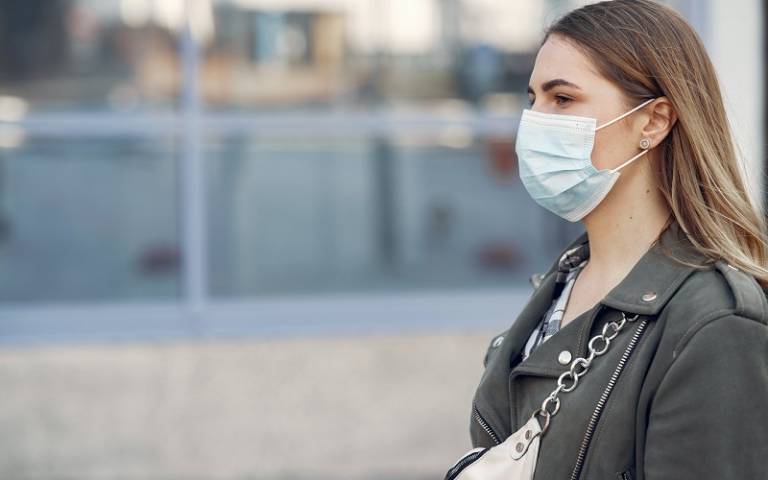Global student competition of ‘visions for a post-COVID world’ launches
17 June 2020
UCL Institute of Education (IOE) and global news site openDemocracy have today (17 June) launched a competition that invites young people to present their visions for a future after lockdown.

The competition is open to school and university students over the age of 14. Entrants can submit either a written article, short video or image that describes their vision for the world after the coronavirus crisis has passed.
It is hosted on the openDemocracy website and closes on 10 July 2020.
Two winners will be selected: a grand prize winner picked by a panel of judges and a People’s Choice winner selected by public vote. The judges, whose fields include education, art and law, among others, will also award prizes for three runners-up.
The grand prize includes £200 in book vouchers and a bespoke training opportunity with either openDemocracy or UCL. This may take the form of a mini-fellowship, work experience or placement in line with the winner’s area of interest. The People’s Choice winner will receive £100 in book vouchers and runners-up will each receive £50 in book vouchers.
All winners and runners-up will receive a personal mentoring or career advice session with one of the judges and their entries will be published on openDemocracy’s website.
Other partners include the Students’ Union UCL and Schoolzone. In addition, the competition will be supported by London COVID-19 Care Central, a new organisation set up by students for students to fight against misinformation and social isolation resulting from COVID-19.
Mary Fitzgerald, Editor-in-Chief of openDemocracy, said: “openDemocracy’s journalism not only focuses on what’s happening right now, in this moment of crisis globally, but on what the future could and should be after the pandemic. We’re looking forward to hearing creative ideas from students of all disciplines and walks of life, and we’re excited to work with the winners to help share and amplify their visions.”
Dr Brett Lashua, Lecturer in Sociology of Media and Education in the IOE’s Department of Education, Society and Practice, said: “The COVID-19 pandemic has challenged us all to reconsider how we see the worlds we’ve made. Extraordinarily creative adaptations and once unimaginable ideas have emerged as solutions not only to this crisis, but also to confront longstanding social and environmental problems. There’s no going back to an inequitable ‘normal’ and it is exciting to see students leading the way toward a more hopeful and equitable future.”
Professor John Schofield, who researches archaeology at the University of York, and is a competition judge, said: “This competition presents a wonderful opportunity for young people to offer their visions for a post lockdown future. Already archaeologists are documenting the COVID landscape, demonstrating how this is a subject relevant across disciplines and creative practice. As an archaeologist and someone involved with cultural heritage and the heritage future, I am delighted to be involved and cannot wait to see the entries.”
Philip Collie, Managing Director of Schoolzone, said: “Amidst high levels of anxiety about health, education and the economy, it’s fantastic to be able to support students in expressing their ideas for an improved, post-COVID world.”
Links
- Find out more about the competition
- We need visions of a better world after COVID: share yours
- Department of Education, Practice and Society
- View Dr Brett Lashua’s research profile
 Close
Close

